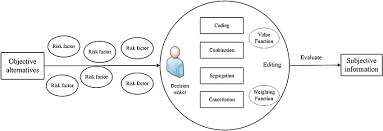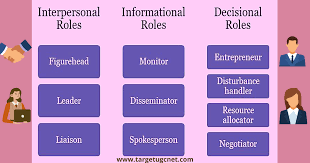The Science of Cognitive Decision Making
Decision making is a complex process that involves various cognitive functions. Cognitive decision making refers to the mental processes that individuals use to evaluate and choose between different options. It involves perception, attention, memory, reasoning, and problem-solving skills.
One key aspect of cognitive decision making is the ability to gather information and analyze it in order to make a choice. This process often involves weighing the pros and cons of each option, considering potential risks and benefits, and predicting potential outcomes.
Research has shown that cognitive biases can influence decision making. These biases are mental shortcuts that our brains use to make decisions quickly but can sometimes lead to errors in judgment. Common cognitive biases include confirmation bias, where individuals seek out information that confirms their preexisting beliefs, and anchoring bias, where individuals rely too heavily on the first piece of information they receive.
Understanding the science behind cognitive decision making can help individuals make more informed choices in their personal and professional lives. By being aware of common biases and learning strategies to overcome them, individuals can improve their decision-making skills and make choices that align with their goals and values.
Overall, cognitive decision making is a fascinating area of study that sheds light on how our minds work when faced with choices. By delving into the complexities of cognitive processes involved in decision making, we can gain valuable insights into how to make better decisions in our daily lives.
Understanding Cognitive Decision Making: Unraveling Biases, Enhancing Skills, and the Impact of Memory
- What is cognitive decision making?
- How does cognitive bias affect decision making?
- What are some common cognitive biases that influence decision making?
- How can I improve my cognitive decision-making skills?
- What role does memory play in cognitive decision making?
What is cognitive decision making?
Cognitive decision making refers to the mental processes and functions that individuals employ to evaluate and choose between different options. It involves a range of cognitive abilities such as perception, attention, memory, reasoning, and problem-solving skills. Cognitive decision making entails gathering information, analyzing it, weighing the pros and cons of each option, considering potential risks and benefits, and predicting outcomes. Understanding cognitive decision making is essential for making informed choices in various aspects of life, as it helps individuals navigate through complex decision-making scenarios by utilizing their cognitive abilities effectively.
How does cognitive bias affect decision making?
Cognitive bias can significantly impact decision making by introducing systematic errors in judgment and reasoning. These biases are mental shortcuts that our brains use to process information quickly, but they can lead to distorted perceptions and flawed decision outcomes. For example, confirmation bias can cause individuals to seek out information that supports their existing beliefs while ignoring contradictory evidence, leading to biased decision making. Similarly, anchoring bias can influence individuals to rely too heavily on initial information when evaluating options, potentially overlooking more relevant data. By understanding how cognitive biases operate and learning to recognize and mitigate their effects, individuals can make more rational and objective decisions that align with their true goals and intentions.
What are some common cognitive biases that influence decision making?
Common cognitive biases can significantly impact decision making processes. Some prevalent biases include confirmation bias, where individuals tend to seek out information that confirms their existing beliefs, and anchoring bias, where individuals rely too heavily on the first piece of information they receive when making decisions. Other common biases include availability heuristic, where people overestimate the importance of information readily available to them, and overconfidence bias, where individuals have excessive confidence in their own judgments and abilities. Being aware of these biases is crucial in order to make more rational and informed decisions.
How can I improve my cognitive decision-making skills?
Improving cognitive decision-making skills involves various strategies that can enhance one’s ability to make informed choices. To enhance cognitive decision-making skills, individuals can start by practicing mindfulness and self-awareness to recognize their own biases and thought patterns. Engaging in critical thinking exercises, seeking diverse perspectives, and gathering relevant information can also help in making more rational decisions. Additionally, honing problem-solving skills, being open to feedback, and learning from past decisions can contribute to improving cognitive decision-making abilities over time. By actively working on these aspects, individuals can enhance their cognitive decision-making skills and make more effective choices in various aspects of their lives.
What role does memory play in cognitive decision making?
Memory plays a crucial role in cognitive decision making by providing individuals with a database of past experiences and information to draw upon when evaluating options and predicting outcomes. Our ability to recall relevant information from memory helps us make comparisons, assess potential risks, and anticipate consequences of different choices. Memory also allows us to learn from past decisions, adjust our strategies, and avoid repeating mistakes. In essence, memory serves as a foundation for cognitive decision making by enabling us to access stored knowledge and experiences that inform our choices in the present moment.




